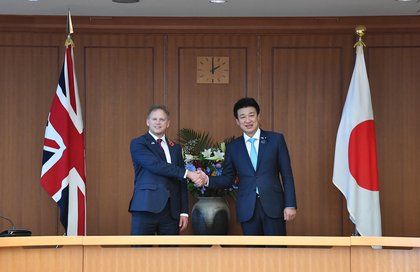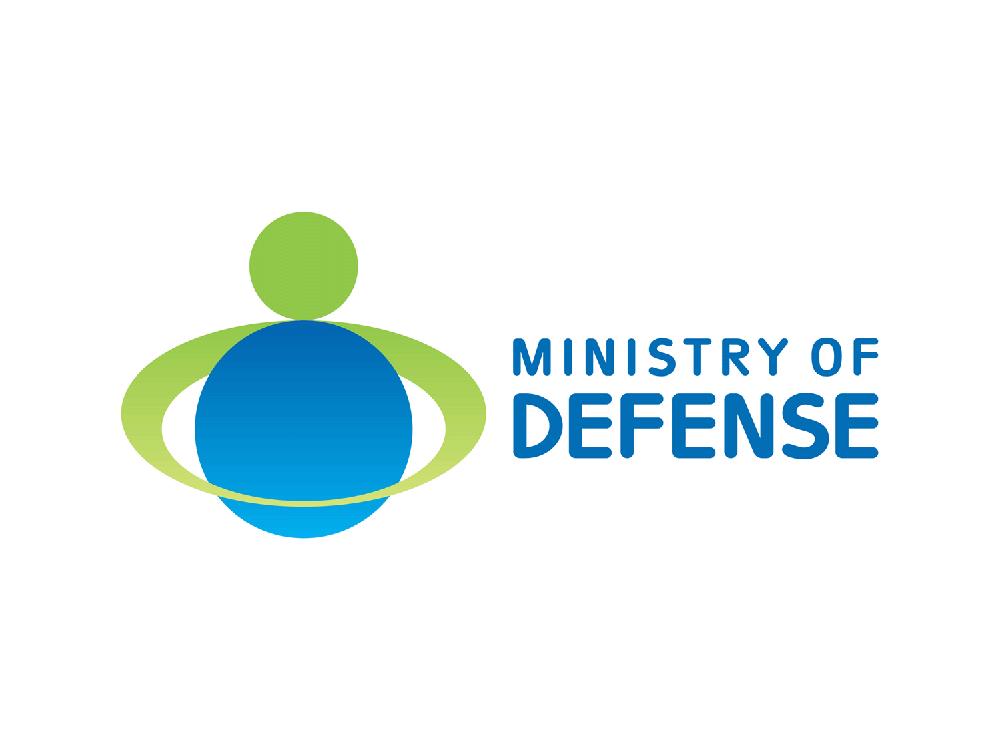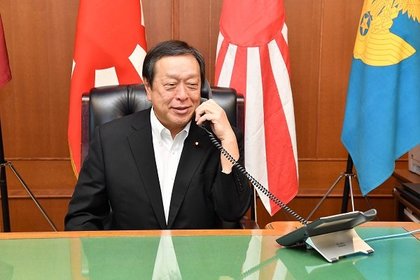Secretary of State Blinken, Secretary of Defense Austin, Minister for Foreign Affairs Hayashi, and Minister of Defense Hamada (referred to collectively as “the Ministers”) convened the U.S.-Japan Security Consultative Committee (SCC) in Washington, D.C., on January 11, 2023.
Recognizing the convergence of their nations’ new national security and defense strategies toward bolstering deterrence in an integrated manner, the Ministers provided a vision of a modernized Alliance postured to prevail in a new era of strategic competition.
The Ministers firmly reiterated their commitment to champion a free and open Indo-Pacific region, heralding the U.S.-Japan Alliance as the cornerstone of regional peace, security, and prosperity. They resolved to advance bilateral modernization initiatives to build a more capable, integrated, and agile Alliance that bolsters deterrence and addresses evolving regional and global security challenges. The Ministers affirmed that the Alliance is stalwart in the face of these challenges and steadfast in support of shared values and norms that underpin the international rules-based order. They renewed their commitment to oppose any unilateral change to the status quo by force regardless of the location in the world.
The Ministers welcomed the release of their respective National Security Strategies and National Defense Strategies, and confirmed unprecedented alignment of their vision, priorities, and goals. This forms a solid foundation for their efforts to constantly modernize the Alliance in order to address the increasingly severe security environment.
Japan reiterated its resolve, under its new strategies, to fundamentally reinforce its defense capabilities, including counterstrike, through a substantial increase of its defense budget. Japan also reaffirmed its determination to lead in its own defense and to expand its roles, in cooperation with the United States and other partners, to actively engage in maintaining regional peace and stability. The United States expressed its strong support for Japan’s updated national security policies as a significant evolution that bolsters Alliance deterrence.
The United States expressed its determination to optimize its force posture in the Indo-Pacific, including in Japan, by forward-deploying more versatile, resilient, and mobile capabilities. Japan supported the U.S. plan to optimize its force posture and welcomed its strong commitment to maintain a robust presence in the region.
The United States restated its unwavering commitment to the defense of Japan under Article V of the Japan-U.S. Security Treaty, using its full range of capabilities, including nuclear. The Ministers held an in-depth discussion on U.S. extended deterrence for Japan, as well as on the recently released U.S. Nuclear Posture Review, and reaffirmed the critical importance of ensuring U.S. extended deterrence remains credible and resilient, bolstered by Japan’s capabilities. They reiterated both countries intend to deepen the substantive discussions at the Extended Deterrence Dialogue as well as through various senior-level meetings.
In accordance with their new strategies, the Ministers decided to accelerate work on evolving Alliance roles and missions and to employ interoperable and advanced capabilities, to address current and future security challenges. The Ministers also resolved to jointly strengthen Alliance activities with allies and partners within and beyond the region.
A New Era of Strategic Competition
The Ministers concurred that China’s foreign policy seeks to reshape the international order to its benefit and to employ China’s growing political, economic, military, and technological power to that end. This behavior is of serious concern to the Alliance and the entire international community, and represents the greatest strategic challenge in the Indo-Pacific region and beyond.
The Ministers reiterated their strong opposition to China’s intensified attempts to unilaterally change the status quo by force in the East China Sea, including through actions that seek to undermine Japan’s longstanding administration of the Senkaku Islands. The United States reaffirmed that Article V of the Japan-U.S. Security Treaty applies to the Senkaku Islands. The Ministers condemned China’s dangerous and provocative military activities around Japan, including China’s ballistic missile launches in August 2022, during which some missiles landed in waters near Japan’s Sakishima Islands. They shared their continuing concerns regarding China’s ongoing and accelerating expansion of its nuclear arsenal, which is also characterized by its lack of transparency.
They also reiterated their strong objections to China’s unlawful maritime claims, militarization of reclaimed features, and threatening and provocative activities in the South China Sea. The Ministers reaffirmed their support for unimpeded lawful commerce and full respect for international law, including freedom of navigation and overflight and other lawful uses of the sea. In this context, they recalled with emphasis that the July 12, 2016, Award in the South China Sea Arbitration (The Republic of Philippines v. The People’s Republic of China), constituted under the 1982 Law of the Sea Convention (UNCLOS), is final and legally binding on the parties to that proceeding. They confirmed, also in this context, that they will work together closely to address non-market policies and practices as well as economic coercion. The Ministers stated that their basic positions on Taiwan remain unchanged, and reiterated the importance of maintaining peace and stability across the Taiwan Strait as an indispensable element of security and prosperity in the international community. They encouraged the peaceful resolution of cross-Strait issues. They expressed serious concerns about the state of Hong Kong’s autonomy and freedoms as well as human rights issues, including in the Xinjiang Uyghur Autonomous Region.
The Ministers strongly condemned North Korea’s unprecedented number of unlawful and reckless ballistic missile launches over the past year, including of multiple intercontinental ballistic missile (ICBM)-class missiles, and of the ballistic missile that overflew Japan. They expressed strong concern over North Korea’s stated policy to enhance its nuclear arsenal at maximum speed, both in quality and quantity, and reaffirmed their commitment to the complete denuclearization of North Korea. The Ministers urged North Korea to abide by its obligations under UN Security Council resolutions and confirmed the need for an immediate resolution of the abductions issue. The Ministers also committed to deepen cooperation between and among the United States, Japan, and the Republic of Korea, which is critical to addressing the grave threat North Korea presents and to promoting security, peace, and prosperity in the Indo-Pacific region and beyond.
The Ministers strongly condemned Russia’s brutal, unprovoked, and unjustifiable war against Ukraine. They recognized that Russia’s violation of the UN Charter and its attempts to unilaterally change borders by force, including through its ongoing aggression against Ukraine, present a serious security threat for the European region and shake the foundation of the international order. The Ministers condemned Russia’s reckless nuclear rhetoric and its attacks against civilian infrastructure, and they reiterated the need for Russia to be held accountable for its atrocities in Ukraine. The Ministers also highlighted with concern Russia’s growing and provocative strategic military cooperation with China, including through joint operations and drills in the vicinity of Japan.
Modernizing the Alliance
In light of evolving Alliance roles and missions, and enhancing interoperable capabilities to meet the aforementioned security challenges, the Ministers decided to accelerate their consultations, including on the following areas:
(1)Alliance Coordination
The Ministers reemphasized the necessity to further enhance bilateral coordination through the Alliance Coordination Mechanism in order to cope with the full spectrum of possible situations in a timely and integrated manner. In this context, the United States welcomed Japan’s decision to establish a permanent joint headquarters. They committed to exploring more effective Alliance command and control relationships to enhance interoperability and responsiveness. The Ministers also shared the need to improve effective coordination with partner countries for more robust policy and operational cooperation.
(2)Allied Efforts in Peacetime
The Ministers underscored the critical importance of joint efforts in peacetime to deter an armed attack against Japan and destabilizing activities in the region. They decided to deepen bilateral coordination, including on intelligence, surveillance, and reconnaissance (ISR) and flexible deterrent options. They welcomed the U.S. deployment of MQ-9 unmanned aerial vehicles to Kanoya Air Base and the launch of the Bilateral Information Analysis Cell to increase intelligence sharing. In order to maximize the effects of these efforts, they decided to further expand their cooperation in the field of asset protection missions, broader engagement of partners, and strategic messaging. They welcomed the joint/shared use of additional facilities on Kadena Ammunition Storage Area by JSDF. They also committed to expand joint/shared use of U.S. and Japanese facilities and to increase bilateral exercises and training in areas including Japan’s Southwest Islands.
The Ministers stressed the importance of flexible use of air and seaports to ensure the resiliency of defense assets and their operational effectiveness in a contingency. Accordingly, they decided to work together through exercises and planning to enable such use.
(3)Allied Capability to Deter and Respond
The Ministers concurred that Alliance efforts, consistent with new strategy documents, should focus on mission areas such as integrated air and missile defense, anti-surface warfare, anti-submarine warfare, mine warfare, amphibious and airborne operations, intelligence, surveillance, reconnaissance and targeting (ISRT), logistics, and mobility. They decided to deepen bilateral cooperation toward the effective employment of Japan’s counterstrike capabilities in close coordination with the United States. The Ministers welcomed the steady progress on bilateral planning for contingencies as well as on realistic training and exercises such as Keen Sword 23, Resolute Dragon 22, Orient Shield 22, and MV-22 low altitude training.
The Ministers underscored the critical importance of strengthened cross-domain capabilities, particularly integrating the land, maritime, air, space, cyber, electromagnetic spectrum, and other domains.
(4)Space, Cyber, and Information Security
Recognizing the growing importance of outer space to the peace, security and prosperity of the Alliance, the Ministers renewed their commitment to deepening cooperation on space capabilities to strengthen mission assurance, interoperability, and operational cooperation, including through enhanced collaboration in space domain awareness after the operationalization of Japan’s Space Situational Awareness system scheduled in 2023.
The Ministers consider that attacks to, from, or within space present a clear challenge to the security of the Alliance, and affirmed such attacks, in certain circumstances, could lead to the invocation of Article V of the Japan-U.S. Security Treaty. The Ministers also affirmed that a decision as to when such an attack would lead to an invocation of Article V would be made on a case-by-case basis, and through close consultations between Japan and the United States, as would be the case for any other threat.
The Ministers emphasized the foundational importance of cybersecurity and information security for the Alliance. They welcomed the establishment of JSDF Cyber Defense Command in March 2022, and concurred to intensify collaboration to counter increasingly sophisticated and persistent cyber threats. The United States welcomed Japan’s initiatives to bolster its national cybersecurity posture such as the creation of a new organization to coordinate whole-of-government cybersecurity policies, and the introduction of a risk management framework, which would provide a foundation for a wider range of U.S.-Japan cooperation. The Ministers welcomed progress in strengthening industrial cybersecurity, including Japan’s efforts to establish the Standards on Cybersecurity Measures for Defense Industry. Lastly, the Ministers highlighted important progress made so far under the bilateral information security consultations.
(5) Maintaining the Technological Edge
Emphasizing the importance of integrating technological developments into Alliance capabilities, the Ministers committed to bolster technology cooperation and joint investments in emerging technologies to further sharpen the competitive edge of the Alliance. The Ministers also emphasized that resilient, diverse, and secure supply chains of defense equipment are essential to ensure national security.
In this regard, the Ministers welcomed the signing of the Memorandum of Understanding for Research, Development, Test and Evaluation Projects and the Security of Supply Arrangement as well as the substantial progress on the Reciprocal Government Quality Assurance.
With these achievements as well as steady progress on defense science and technology cooperation, including discussions on joint research projects on high-power microwaves and autonomous systems, the Ministers concurred to further promote their efforts toward joint research and development of defense equipment. Based on the progress of joint analysis on counter-hypersonic technology, the Ministers concurred to begin joint research on important elements including advanced materials and hypersonic testbeds. The Ministers also concurred to begin discussion on potential joint development of a future interceptor. The Ministers also shared the importance of deepening technological cooperation with like-minded allies and partners, which complements bilateral efforts.
Expanding Alliance Partnerships
The Ministers renewed their commitment to further advance their partnership with Australia by building on outcomes from the Trilateral Strategic Dialogue in August 2022 and Trilateral Defense Ministers Meeting in June and October 2022 and by taking advantage of the expanding activities under the Japan-Australia Joint Declaration on Security Cooperation signed in October 2022. In this context, they highlighted the successful completion of the first coordinated asset protection mission among the three countries in November 2022. They also expressed their determination to increase trilateral training and exercises to enhance interoperability, including on ISR, as well as to explore opportunities for technological cooperation. In this context, they reaffirmed the importance of increasing trilateral training opportunities including in northern Australia, based on the Joint Statement on Australia-U.S. Ministerial Consultations issued in December 2022. The Ministers reaffirmed their commitment to supporting quality, transparent infrastructure development that addresses the needs of Indo-Pacific partners and welcomed the renewal of the Trilateral Infrastructure Partnership MOU with Australia.
The Ministers also emphasized the importance of further deepening their cooperation with the Republic of Korea and exploring opportunities for multilateral and trilateral exercises and other activities, including in areas such as ballistic missile defense, anti-submarine warfare, maritime security, search and rescue, and humanitarian assistance/disaster relief.
The Ministers reaffirmed their strong support for ASEAN’s unity and centrality and the ASEAN Outlook on the Indo-Pacific. They acknowledged the importance of further promoting economic and security cooperation with partners in Southeast Asia and Pacific Island countries through such activities as joint training, capacity building, and potential transfers of defense equipment. The Ministers welcomed further cooperation under the Partners in the Blue Pacific Initiative, which will support the Pacific Islands Forum’s 2050 Strategy for the Blue Pacific Continent. The Ministers reconfirmed the importance of the Quad, which has made positive contributions to the region through promoting practical cooperation in various fields.
Noting that likeminded nations are facing similar, and mutually-reinforcing threats to the global rules-based order in the Indo-Pacific and Euro-Atlantic regions, the Ministers welcomed greater engagement in the Indo-Pacific by Euro-Atlantic partners—both bilaterally and through multilateral entities such as NATO and the EU. They expressed support for expanded exercises and deployments, facilitated by Japan’s new bilateral agreements including forthcoming Reciprocal Access Agreements with Australia and the United Kingdom. The United States endorsed Japan’s efforts to finalize its NATO Individually Tailored Partnership Program, and welcomed Japan’s enhanced emphasis on European security through its provision of assistance to Ukraine. The United States likewise hailed Japan’s increased cooperation with NATO, and Japan’s leadership role in NATO’s Asia Pacific partners’ group. From this perspective, the United States welcomed Prime Minister Kishida’s attendance at the NATO Summit in Madrid in June 2022—the first time a Japanese Prime Minister has participated in a NATO Summit.
Optimizing Alliance Posture
The Ministers affirmed the need to optimize Alliance force posture based on improved operational concepts and enhanced capabilities to address increasing security challenges in the region, including for the defense of the Southwestern Islands of Japan.
Facing a severely contested environment, they confirmed that the forward posture of U.S. forces in Japan should be upgraded to strengthen Alliance deterrence and response capabilities by positioning more versatile, resilient, and mobile forces with increased intelligence, surveillance, and reconnaissance, anti-ship, and transportation capabilities.
In line with such policy, the Japan-U.S. Roadmap for Realignment Implementation, as adjusted by the SCC on April 27, 2012, will be readjusted so that the 3rd Marine Division Headquarters and the 12th Marine Regiment will remain in Okinawa. The 12th Marine Regiment will be reorganized into the 12th Marine Littoral Regiment by 2025.
The Ministers reiterated their commitment to the basic tenets of the 2012 Realignment Plan, and confirmed that these readjustments do not affect the lands scheduled to be returned in the Okinawa Consolidation Plan, nor continued progress for the Futenma Replacement Facility at Camp Schwab.
The Ministers reaffirmed their commitment to achieve an end-state for the U.S. Marine Corps presence in Okinawa consistent with the levels envisioned in the Realignment Roadmap as revised in 2012.
The Ministers also confirmed that these readjustments do not require any changes to Japan’s cash contribution and construction projects based upon the amended Guam International Agreement.
To further strengthen Alliance maritime mobility in Japan, the Ministers welcomed the establishment of the Composite Watercraft Company at Yokohama North Dock scheduled in 2023.
The Ministers affirmed that these initiatives demonstrate the steadfast commitment of the United States to the defense of Japan and share the same direction with Japan’s fundamental reinforcement of its defense capabilities. They confirmed that the optimized posture of the U.S. forces in Japan, with enhanced JSDF capabilities and posture in areas including the Southwestern Islands, would substantially strengthen Alliance deterrence and response capabilities.
The Ministers decided to continue close consultation on these initiatives and ways to further optimize U.S. force posture in Japan.
The Ministers also reconfirmed the steady implementation of ongoing projects supporting realignment of facilities and areas of U.S. Forces in Japan and the importance of relationships with local communities. The Ministers underlined their commitment to continue construction of the Futenma Replacement Facility at the Camp Schwab/Henokosaki area and in adjacent waters as the only solution that avoids the continued use of Marine Corps Air Station Futenma. The Ministers welcomed the progress and future prospects for the development of the SDF facility on Mageshima, which will be used for purposes including Field Carrier Landing Practice. They confirmed the importance of accelerating bilateral work on U.S. force realignment efforts, including construction of relocation facilities and land returns in Okinawa, and the relocation of Marine Corps personnel from Okinawa to Guam beginning in 2024. The Ministers affirmed the importance of continued bilateral coordination for sharing timely information on incidents and accidents, enhancing environmental cooperation, as well as mitigating impacts on, and supporting strong relationships with, local communities while communicating with them about the importance of Alliance activities.
Joint Statement of the Security Consultative Committee (“2+2”)(PDF)




